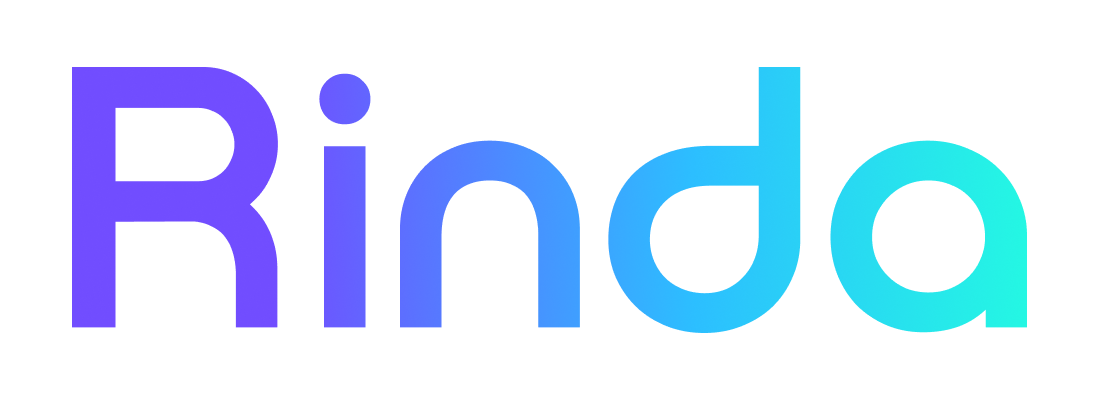From 1,300+ AI Sales Tools to ONE Choice: Selecting the Right Sales AI in 2025
Learn how to select the right AI sales tools in 2025 with insights on top platforms and decision-making strategies for measurable ROI.
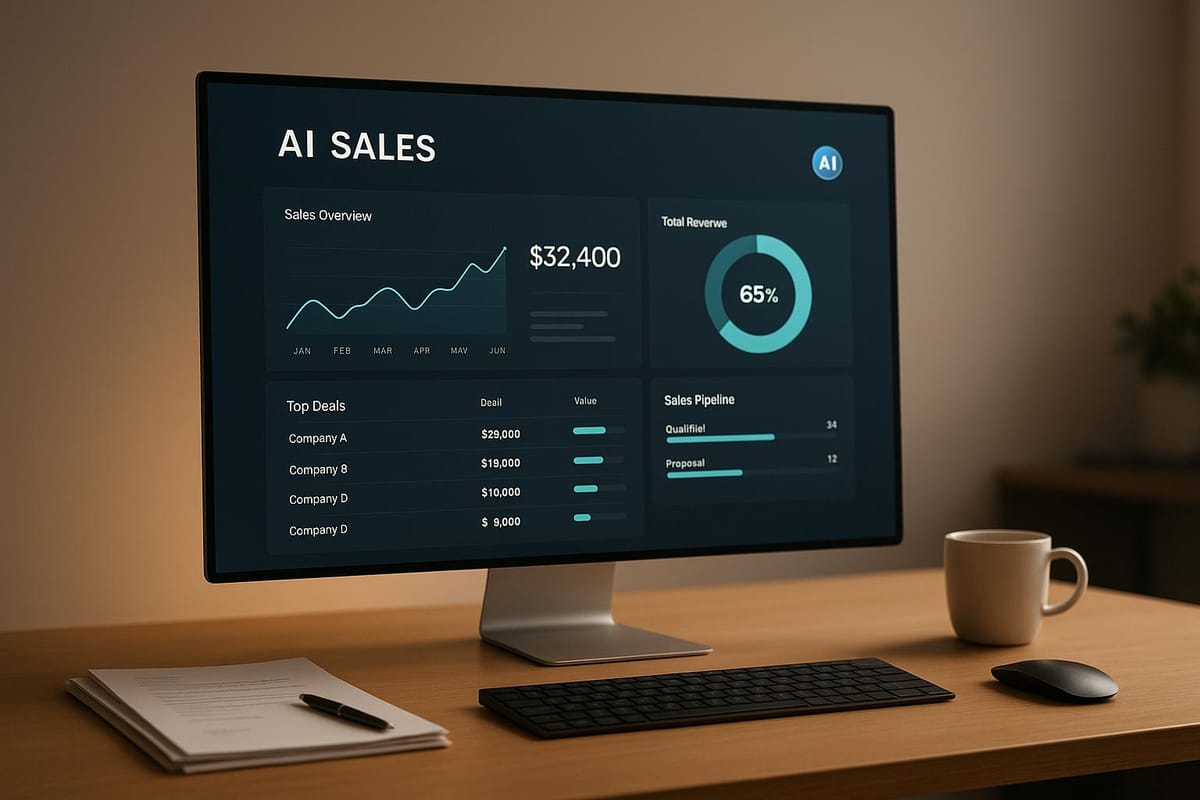
Navigating the crowded AI sales tools market in 2025 is no small feat. With over 1,300 options available, sales leaders often face analysis paralysis, lengthy evaluations, and missed opportunities to outpace competitors. The challenge lies in identifying tools that align with specific business needs without getting lost in endless feature comparisons.
In this article, you'll learn how to:
- Identify tools that deliver measurable ROI by focusing on scalability, integration, and multilingual capabilities.
- Streamline decision-making with a framework to prioritize tools based on your unique sales objectives.
- Explore key platforms, such as Salesforce Einstein, Salesloft, Drift, and Rinda, with insights into their strengths, limitations, and real-world applications.
As businesses increasingly adopt AI to accelerate sales, keeping up with global trends and market demands is crucial. Whether you're a domestic team or aiming for international expansion, understanding the nuances of these tools can help you make informed decisions. Read on to discover how to simplify your selection process and gain an edge in the competitive sales landscape.
13 Best AI Sales Tools & Agents 2025 (Ranking & Full Demo)
1. Salesforce Einstein
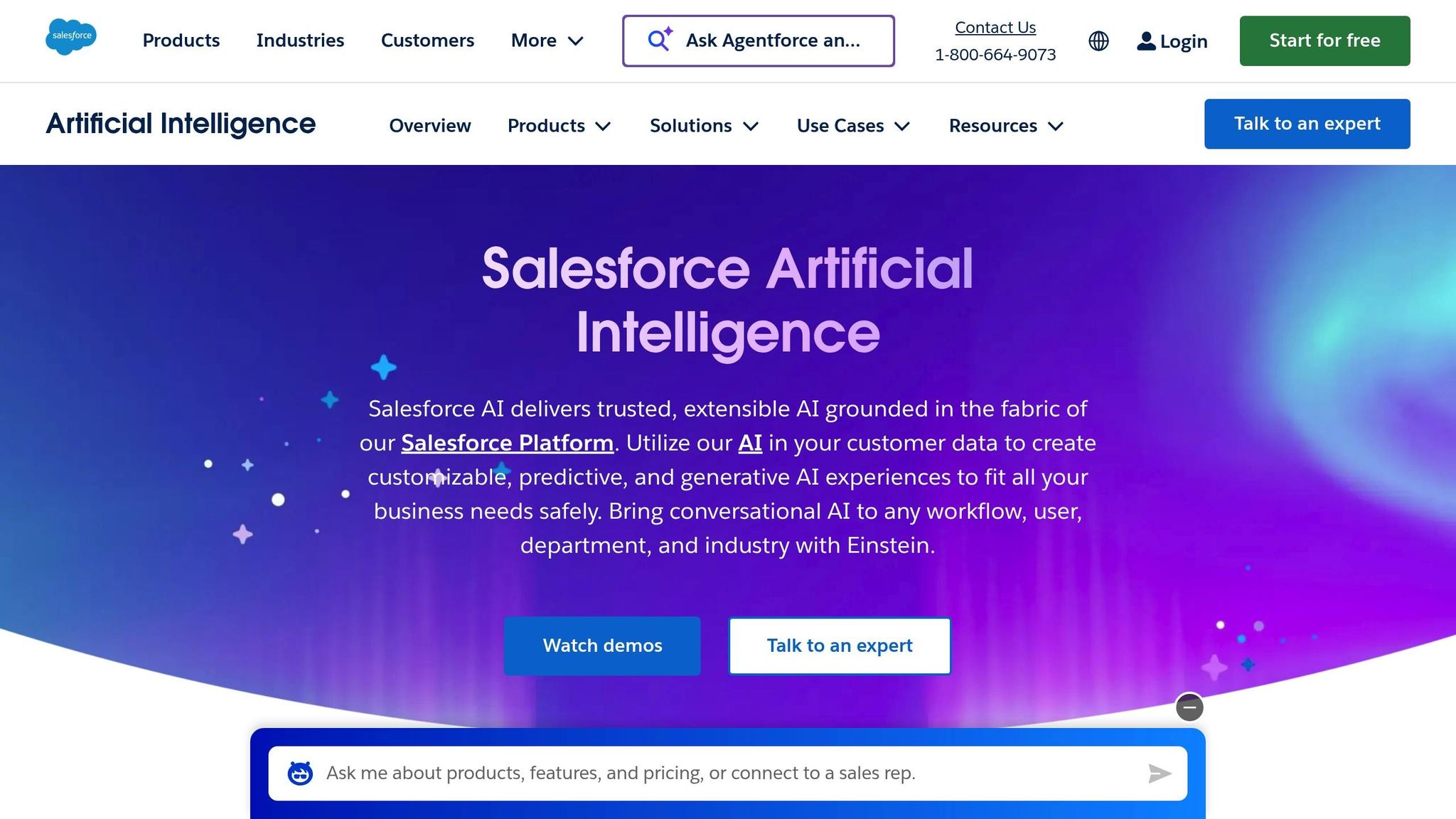
Salesforce Einstein brings AI capabilities directly into the Salesforce CRM platform, utilizing machine learning to streamline and enhance various aspects of the sales process. Its tight integration within the Salesforce ecosystem ensures a smooth flow of data without requiring external connections. Additionally, the Salesforce AppExchange offers a range of tools and applications that further expand Einstein's functionality.
Einstein is designed to meet the needs of different industries by providing insights tailored to your specific sales data. However, its effectiveness can vary depending on the quality of the data and the unique demands of each industry.
One limitation to consider is that Einstein primarily supports English, which may pose challenges for multinational teams working across diverse languages.
The platform's return on investment (ROI) hinges on two key factors: the quality of the data and how well users adopt the system. Organizations with strong historical data often see quicker and more noticeable results.
Einstein’s scalability makes it a good fit for both small teams and larger enterprises. As data accumulates, the AI models become increasingly refined, boosting their overall performance.
Salesforce provides customer support based on its enterprise service model. However, the quality of support can vary depending on the level of engagement and service package chosen.
In summary, Salesforce Einstein delivers AI-driven insights and automation within the familiar Salesforce environment. While it offers powerful tools for sales teams, considerations around language support and customer service consistency should be kept in mind.
Next, we’ll take a closer look at Salesloft to explore another AI-powered sales platform.
2. Salesloft
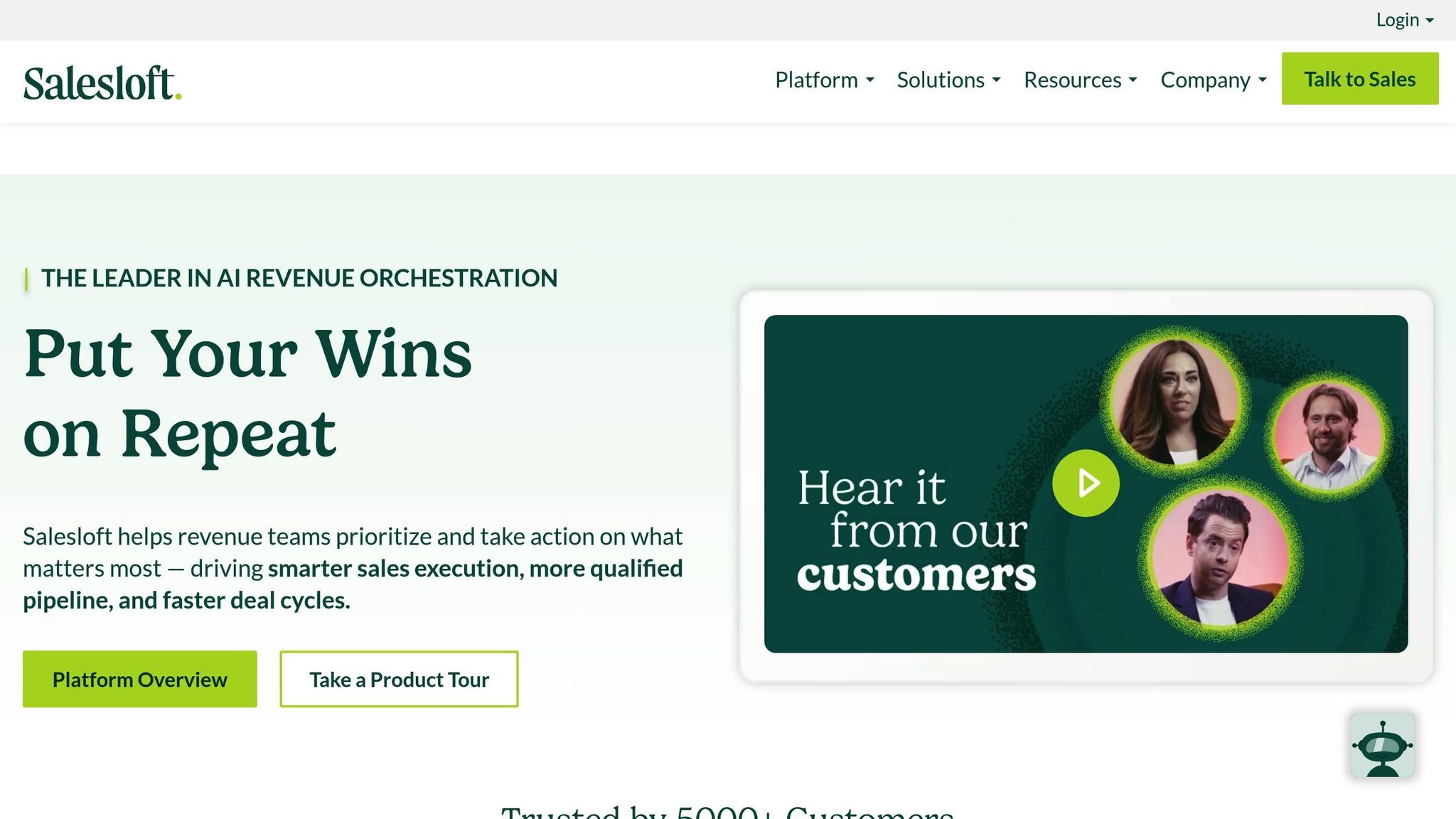
Salesloft is an AI-driven revenue orchestration platform tailored for complex B2B sales processes. With insights derived from analyzing 5 billion buyer-seller interactions, it simplifies multi-stakeholder sales by leveraging automation and data-backed insights. Its performance forms a solid foundation for the integrations discussed below.
One of Salesloft's standout features is its ability to integrate seamlessly with leading CRM systems, including Salesforce, Microsoft Dynamics 365, HubSpot, and Zoho. Through its CRM Sync feature, the platform offers real-time activity logging and two-way syncing, eliminating the time-consuming task of manual data entry for sales teams. Additionally, the Salesloft Connect Chrome extension provides convenient access to essential features directly within Gmail, Outlook, or HubSpot. For businesses with unique needs, Salesloft's API supports custom integrations, allowing users to extend the platform's functionality.
Salesloft is particularly effective for industries with complex B2B sales cycles, such as manufacturing and enterprise technology. In July 2025, several companies achieved remarkable results using the platform: 3M reduced deal closure times by 2.5×; Nielsen IQ surpassed its pipeline goals by 8×; and Wrike cut $350,000 in sales technology expenses.
A Forrester study highlighted the platform's financial impact, revealing a 236% ROI and a $26.69M net present value over three years. Customers experienced a 152% increase in opportunities, an 8% faster sales cycle, and a 30% improvement in win rates.
"The ability to send 50+ emails in a day that are all customized while also having the time to put in 100 calls is incredible",
shared Gregory H, a Sales Development Representative.
Salesloft's scalability makes it suitable for both growing teams and established enterprises. Its AI models continuously improve as they process more data, ensuring better outcomes over time. With enterprise-grade reliability, the platform is an excellent choice for organizations seeking stability and robust administrative control.
Next, we’ll dive into Drift’s conversational AI approach to uncover more advancements in sales automation.
3. Drift
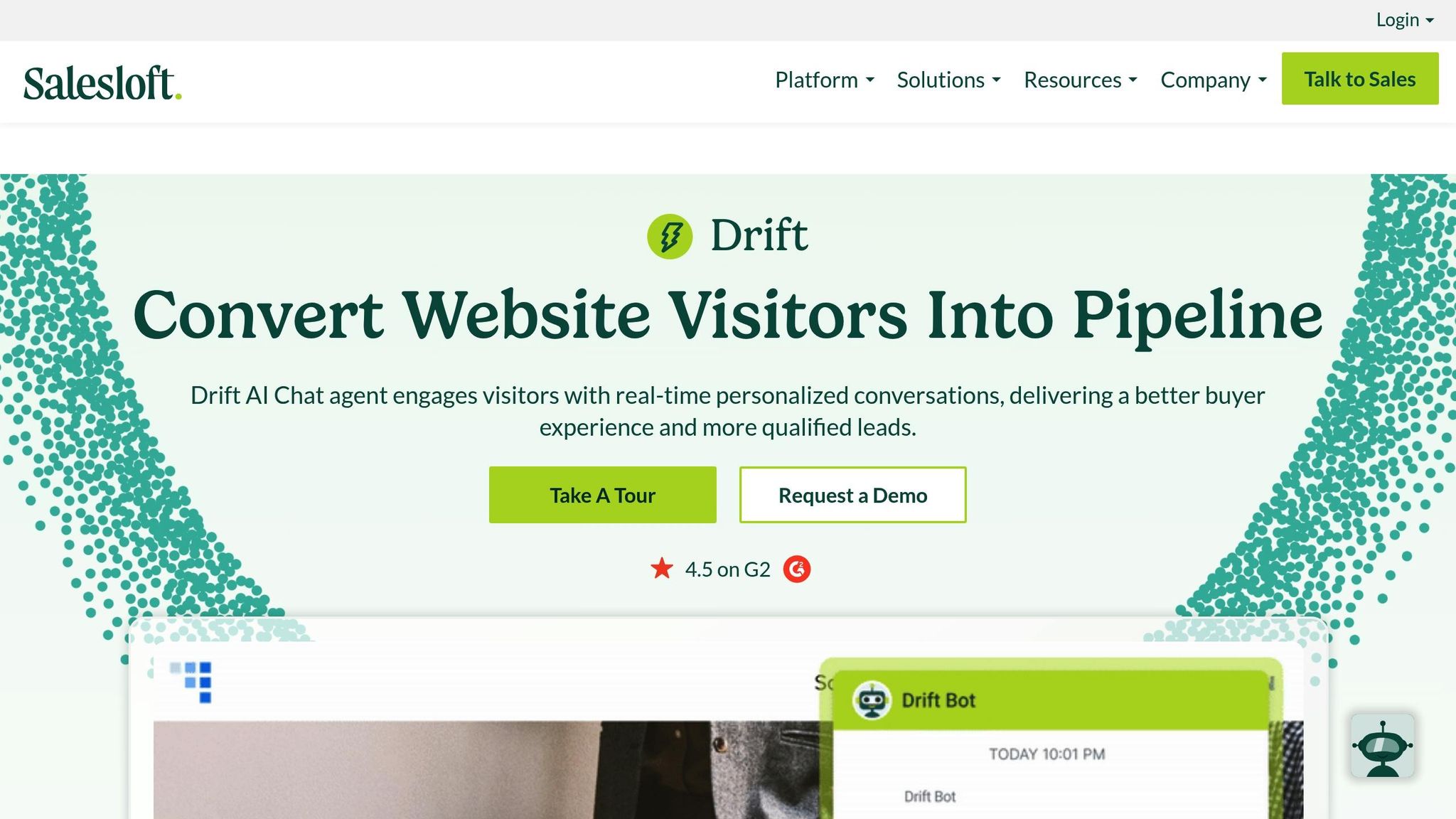
Drift is a conversational AI platform designed to facilitate real-time engagement with prospects through automated chatbot interactions. To support multilingual sales teams, Drift integrates with Lokalise Messages, enabling two-way chat translation across more than 100 languages. This is powered by AI-driven neural machine translation, ensuring quick and efficient communication. Additionally, the platform features an analytics dashboard that tracks language usage and offers a customizable glossary, helping maintain accuracy for industry-specific terms.
However, Drift's native multilingual capabilities are somewhat limited, as it depends on third-party integrations to provide comprehensive language support.
Next, we’ll explore AI agents specifically created to meet the needs of global sales teams.
4. Rinda
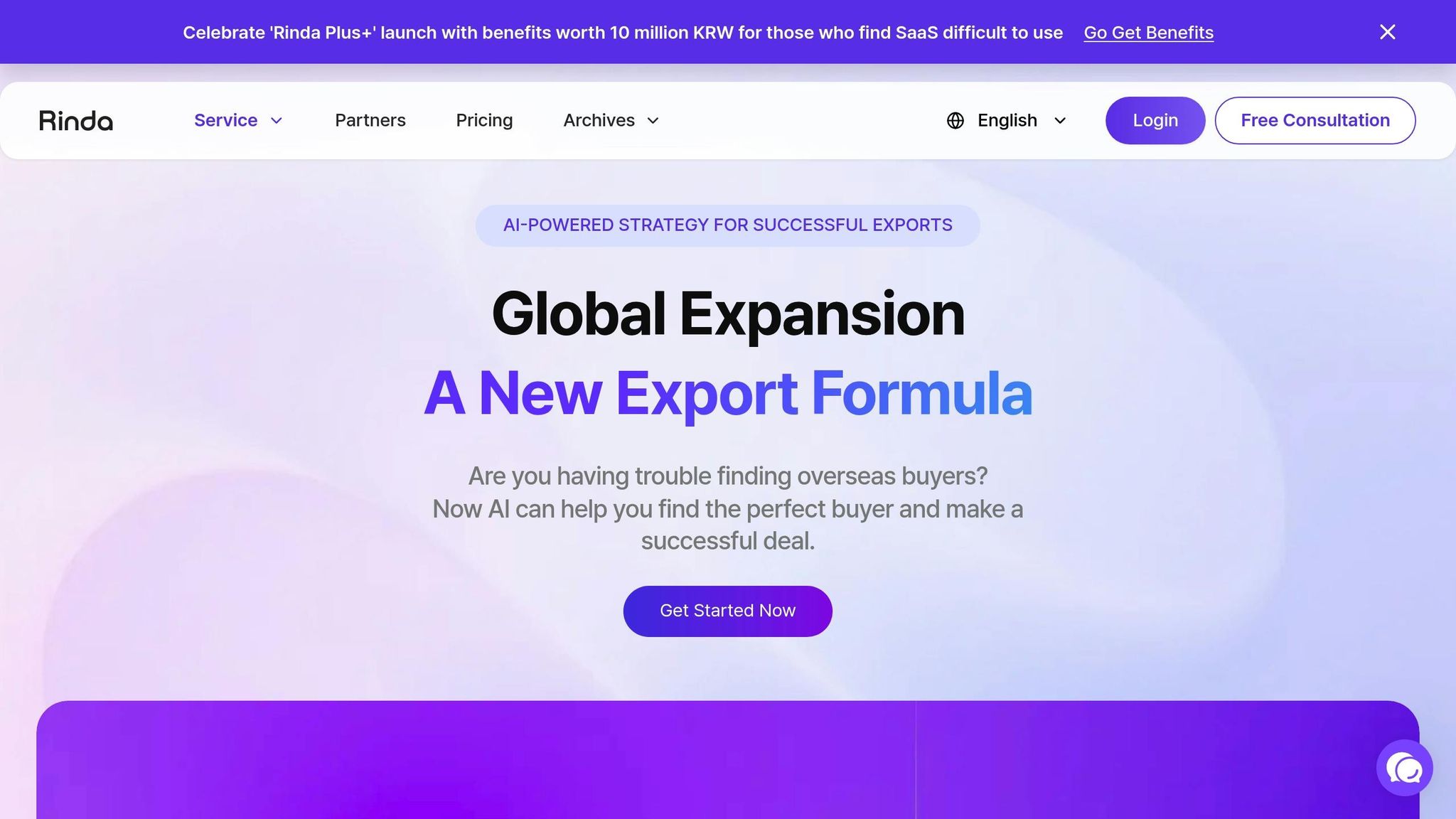
Rinda focuses on AI-powered sales automation tailored for businesses aiming to expand internationally. Its platform combines overseas buyer discovery with multilingual communication capabilities, supporting over 20 languages. Additionally, it offers automatic buyer credibility checks and customized strategies to help businesses adapt to the unique market dynamics of different regions.
The pricing structure is designed to accommodate various needs. The Standard plan costs $120/month and includes 1,000 enriched profiles and personalized email capabilities. There’s also a Free plan for up to 100 leads, while the Enterprise plan provides unlimited search, enrichment, and email options. For larger teams, the All‑in‑One plan is available at ₩798,000/month, offering dedicated global sales support and exclusive features for the first 50 teams.
Customer support scales with the selected plan. Standard plan users gain access to expert consultations, while Enterprise customers are assigned dedicated account managers along with comprehensive customer success resources. The All‑in‑One plan goes a step further, offering a "no meeting, full refund" performance guarantee, emphasizing Rinda's commitment to delivering quantifiable results in international sales.
This comprehensive overview of Rinda's features and pricing provides a solid foundation for assessing its capabilities and potential limitations.
Pros and Cons
After exploring Rinda's features in detail, it's time to break down its main strengths and potential limitations.
Rinda is designed to boost global sales with tools tailored for international markets.
Pros:
- Multilingual Support: Offers compatibility with over 20 languages, making global communication easier.
- AI-Powered Lead Discovery: Automatically identifies leads and performs credibility checks to simplify international targeting.
- Culturally Tailored Outreach: Enables personalized strategies that align with different cultural expectations.
- Result-Driven Guarantee: The "no meeting, full refund" policy ensures users see measurable outcomes.
- Pricing Options: Provides flexibility with plans ranging from free to enterprise-level solutions.
Cons:
- Limited Appeal for Domestic-Only Businesses: Companies focused solely on local markets might find some international features unnecessary.
- Cost for Advanced Plans: The higher-tier plans, which include specialized support and expertise, may be less accessible for smaller businesses or those with a domestic focus.
Conclusion
Navigating the crowded landscape of over 1,300 AI sales tools can feel overwhelming, but the key lies in aligning your choice with your business's specific needs. For example, Salesforce Einstein is ideal for enterprises already embedded in the Salesforce ecosystem, Salesloft caters well to mid-market domestic teams, and Drift shines in conversational marketing automation.
To recap, global teams often face challenges like language barriers and complex markets that generic tools fail to address effectively. That’s where Rinda stands out. Designed for businesses aiming for international expansion, it supports multilingual communication in over 20 languages, offers tailored strategies, and backs its promise with a "no meeting, full refund" guarantee - underscoring its focus on delivering measurable outcomes for global growth.
When selecting an AI sales tool, match its capabilities to your team's objectives. Tools with strong local integrations might work best for businesses focused on domestic markets. However, for companies targeting international growth, Rinda offers automation that’s specifically tailored for global operations. Keep in mind factors like your team's technical skills, budget, and growth timeline. By using our decision framework - which emphasizes integration, industry focus, multilingual support, ROI, scalability, and customer support - you can confidently choose a tool that drives your sales strategy forward. Simplifying your options turns a daunting selection process into a powerful step toward achieving your business goals.
FAQs
How can businesses choose the right AI sales tool to maximize ROI?
Choosing the ideal AI sales tool to improve your return on investment (ROI) starts with a clear understanding of your business's specific needs and objectives. Look for tools that can easily work with your existing systems, such as your CRM, to simplify processes and enhance overall productivity.
Assess whether the tool is designed for your industry and includes features that align with your sales strategies. Take into account the expected ROI timeline - how soon you can expect tangible outcomes - and ensure the tool has the flexibility to grow with your business. Lastly, choose solutions that come with reliable customer support and training resources to ensure a smooth transition and sustained success over time.
What should I look for in an AI sales tool to ensure it scales and integrates well with my business?
When considering an AI sales tool, two critical factors to keep in mind are scalability and integration.
For scalability, choose a tool that can manage increasing workloads without compromising on performance or accuracy. This means it should handle larger datasets effectively, adjust to evolving business requirements, and accommodate growth without incurring hefty upgrade costs.
When it comes to integration, the tool should work effortlessly with your current systems, like your CRM, email marketing platforms, and other sales software. This ensures minimal disruptions and helps maintain a smooth workflow. Look for solutions that offer straightforward setup, compatibility with your existing technology, and reliable ongoing support to keep operations running smoothly.
How does Rinda's multilingual support and culturally tailored strategies boost global sales success?
Rinda’s ability to support multiple languages ensures smooth communication with customers in the language they are most comfortable with. This approach removes communication barriers and builds stronger connections. By incorporating outreach strategies that reflect the cultural nuances of different regions, Rinda ensures that sales messages feel relevant and relatable to diverse audiences across global markets.
This functionality helps sales teams establish genuine connections with prospects, leading to higher conversion rates and fostering deeper, more meaningful relationships, particularly in regions where multilingual and multicultural dynamics are key.
Related Blog Posts
- The Startup Sales Playbook 2025: Y Combinator-Backed AI Agents Replace Traditional SDRs
- AI Sales Agents Replace 10,000+ Jobs in July - Is Your Sales Team Next?
- From Email to AI Agents: The Evolution of B2B Sales Automation in 2025
- How AI Sales Agents Are Saving 7+ Hours Per Week: 2025 Global Sales Revolution
